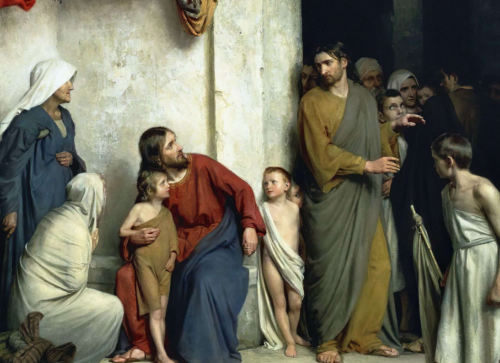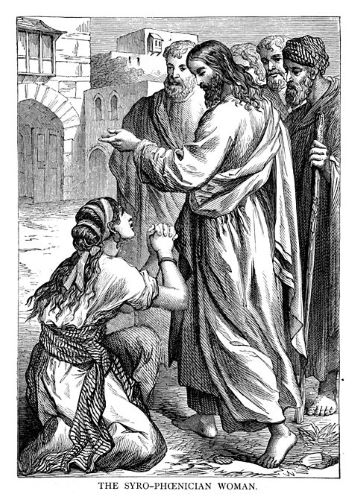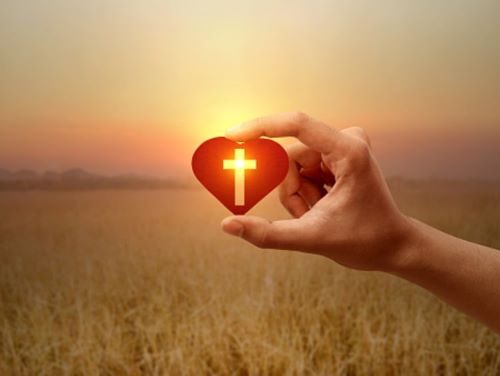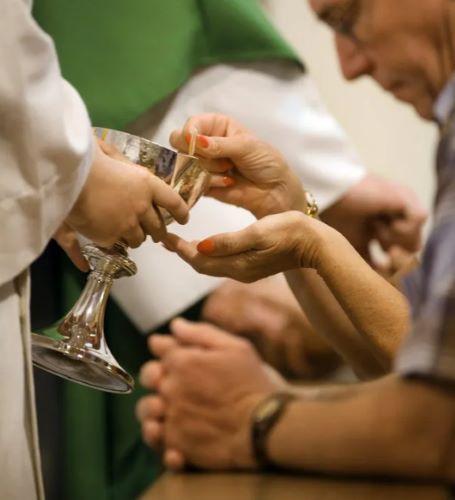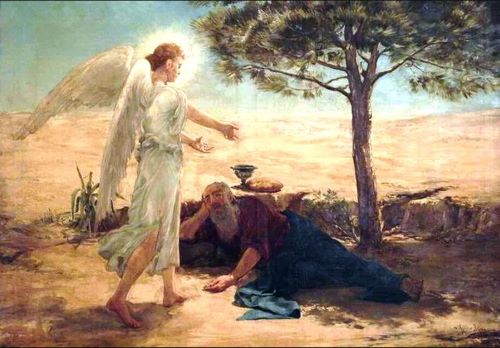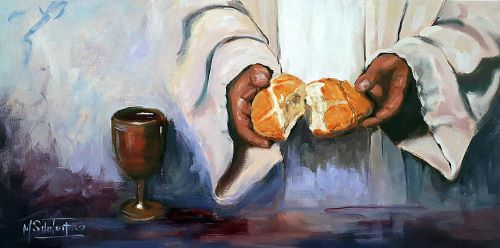Sowing, Reaping, and More
Year C
Exodus 3:1-15
Psalm 63:1-8
1 Corinthians 10:1-13
Luke 13:1-9
May the words of my mouth O God… speak your truth…
The story of Moses and the Burning Bush… fascinated me as a child… it was one of the Bible stories we came back to again and again in Hebrew and Sunday School… the idea that something could be on fire… but not be consumed was beyond understanding… a miracle… almost magical… and so many of us have a fixed image of it… from the movie The Ten Commandments… that’s been almost burned into our collective consciousness…
And now… as an adult… I think about some of the qualities of fire… and wonder what it might have meant… how life-giving it must have been for the ancient Israelites… warmth on a cold desert night… the ability to cook food… and both literally… and maybe especially figuratively… its ability to shine light in all kinds of darkness…
And in today’s reading from Exodus… we’re all familiar with God identifying Godself as I AM… God tells Moses to tell the Israelites that… I AM has sent me to you… or we may sometimes hear God’s name as I AM Who I AM… though Fr. John Meulendyk… a Franciscan with the Order of the Holy Cross… tells us that a more precise translation from the Hebrew… which uses the simplest form of the verb to be… renders God’s name as… I AM becoming who I AM becoming…
And to help us understand this becoming… Fr. Meulendyk asks us to imagine three people dancing in a circle… the dance is performed by the people… they are participants in it… but they are not the dance itself… and so it is with God… who is found in the motion… the surprise… the music… and the relationship between the dancers… and since God is able to say… I AM becoming who I AM becoming… that means that God has no fixed or frozen image… but grows and changes as our collective state of being… grows and changes too…
But we prefer fixed images… we rely on them to navigate our way in the world… and so for us… it may mean that we need to give up an image of God that we have been carrying for years… and while God is constantly and ever with us… a God beyond our understanding prevents us from grabbing onto God… from capturing and putting God in a box… but it does allow God to grab onto us… and the early church Fathers would call that act of grabbing… grace…
But nevertheless… we try to grab on to certainty… grabbing on to knowing what we cannot know… to try to know cause and effect… we have inherited the mindset of Job’s friends… who wonder what he must have done… to reap such dire punishment from God… but we know… that the calamity which befell Job… was not of God… but of the Satan… the accuser… and the same kind of mindset found expression almost two thousand years later… when… in the Gospel of John 9:2-3… Jesus’ disciples asked him… Rabbi… who sinned… this man or his parents… that he was born blind… and Jesus answered… nope… not going there… not going to play that game… it doesn’t work like that… the kind of judgment you’re quick to use in other people’s situations… doesn’t reflect God’s logic… and so Jesus obliterates our internal ledgers… and points us to metanoia… to turning back to God…
Physics tells us that there is cause and effect… Galatians 6:7 tells us… you reap whatever you sow… although it’s possible to reap more than what we sow… because the law of sowing and reaping is related to the law of multiplication… Jesus spoke in Matthew 13:8… of seed that brought forth… a hundred… sixty… or thirty times what was sown… and Luke 6:43-44 tells us that… each tree is known by its own fruit… figs are not gathered from thorns… nor are grapes picked from a bramble bush…
But sometimes there’s an effect without a known cause… Jesus clarifies in today’s Gospel… that the Galileans whose blood Pilate mingled with their sacrifices were no worse sinners than all other Galileans… and that those eighteen on whom the tower of Siloam fell were not worse offenders than all the others living in Jerusalem… so two things are true… there is both cause and effect… for the things we both say and do…
And there is some kind of randomness… which rises up out of our free will… when it’s not aligned with God’s will… or with God’s becoming… and we wonder why bad things happen to good people… it would be like us asking today… what have the Ukrainians done to deserve Putin’s unmitigated wrath… and while some of us might offer up explanations… as Job’s friends did… none of them would reflect God’s logic…
And so after Jesus responds to what he was told about the Galileans… and what he knew about those in Jerusalem… he said… unless you repent… you will all perish just as they did… and he didn’t mean in the same ways that they did… but just that they would perish without the eternal life that repentance brings… and he tells a parable to explain the urgency of repentance… and about how it is a matter of life and death…
A gardener pleads with a vineyard owner not to make him cut down a barren fig tree… The gardener’s word translated as let it alone… is also the root word… from which we get the word forgiveness… it also appears two chapters earlier… in Luke’s version of the Lord’s Prayer in Ch. 11:4…
And Jesus makes a surprising connection between his call for us to turn back to God and this parable… the fig tree doesn’t produce… and so based on the metrics of any farm… it makes sense to cut it down and use its resources for those trees that are thriving and growing… but the servant… whose hope is based on the time and attention he can give the tree… asks for forgiveness… for grace… for the time and space to try… he’ll treat it as though it’s one of the thriving trees… watering it and fertilizing the soil…
And when we first read this Gospel… it may be easy to think that the owner of the vineyard is God… and that we’re the fig tree… perhaps afraid of being cut down… or that maybe we’re the gardener… wanting to do good works… but I wonder if maybe we are the vineyard owners… and the fig tree is our religion… which is not helping us bear enough fruit… and Jesus is the gardener… who beseeches us… for more time… to turn back… and to become…
And the kind of fruit Jesus is talking about is described in Galatians 5:22-23… where we read that the fruit of the Spirit is love… joy… peace… patience… kindness… generosity… faithfulness… gentleness… and self-control… and just as one little fib can produce an out-of-control frenzy of falsehoods… fallacies… and fictions… so one small kind deed can result in a blessing which lasts a lifetime…
In the inseparable interconnectedness of the motion… surprise… music… and relationship between we the dancers… and God… we’re all growing into mutual fulfillment… and this parable ends with the gardener… with Jesus… suggesting a proposition… before we cut down our religion… let Jesus tend to us… nourish us… give us more time… the gardener asks for just one more year… and since 2Peter 3:8 reminds us that for God… one day is like a thousand years… and a thousand years are like one day… that God is not slow as some think of slowness… but is patient… not wanting any to perish… but all to come to repentance… so there’s time… and the parable ends like our favorite show’s final episode of season one… with us wanting to know more… what will the people of God do… how will they receive Jesus’ ministrations… will we let Jesus nourish our religion… and what fruit will we bear…

